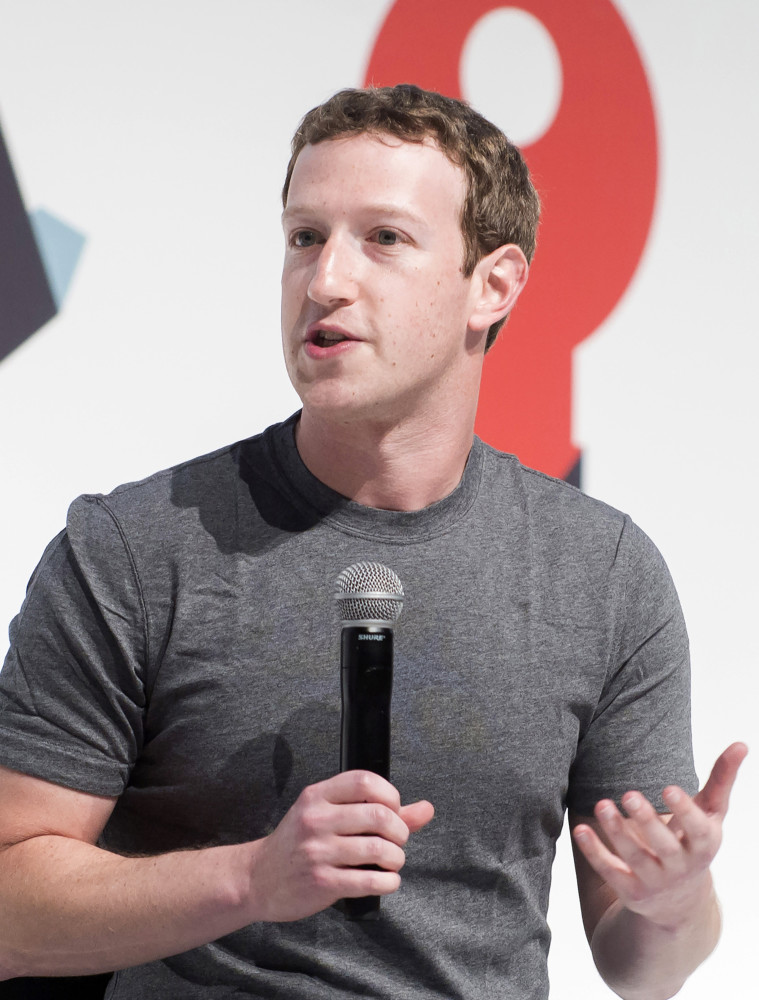By Tracey Lien
Los Angeles Times.
When Mark Zuckerberg announced in July he and wife Priscilla Chan were expecting their first child, the Internet lit up with congratulations. Friends and strangers were thrilled for the Facebook founder and quick to tell him his life would soon change.
But for a company leader so closely tied to the Facebook product, Zuckerberg’s news prompted tech circles to wonder: How would Facebook change?
It’s no secret the 31-year-old chief executive has enormous influence over Facebook’s products. “It’s all he wants to think about day in and day out,” said David Kirkpatrick, author of “The Facebook Effect: The Inside Story of the Company That Is Connecting the World.” “He is obsessed with the product. He sits in the middle of the product team, and the thing that continues to motivate him is the product.”
Zuckerberg’s peers in the tech world believe Zuckerberg as dad will give him even more vision, the kind one develops only from experiencing parenthood.
“I think in general we all implement design based on life experience, and having a kid really changes your perspective,” said Dan Ward, co-founder of app development firm Detroit Labs and father of a 1-year-old. “Before, when I looked at new technology, I’d say, ‘That’s really cool.’ But now I immediately jump to ‘How could that be abused?'”
Working with company founders to develop apps, Ward consistently finds that a company leader’s personal experience can be a huge driving force in determining what gets prioritized. For better or worse, their wants and needs often trump research and data.
“You have folks below them that will lead with data, and they’ve thought through it and have research to back it up, but a CEO or CMO or any other C-level person, especially at a big organization, if they have a kid who has shown them some new tech, or they’ve been in an airport that has a new tech, they will hold onto that experience and become very passionate about it,” Ward said.
Designers and researchers in Silicon Valley say it happens all the time, and Facebook is no exception.
Employees at the social network and Zuckerberg himself have attributed features such as memorialized accounts and messaging to the company leaders’ personal experiences.
The ability to memorialize an account was spurred by a Facebook employee’s death. People with Facebook accounts obviously had been dying before that, but the feature wasn’t a priority until people at a high level within the company experienced such a loss themselves.
Zuckerberg revealed in 2010 that in a conversation with Priscilla’s younger sister over Thanksgiving dinner he learned that teenagers don’t use email (“They said it’s too formal … it’s too slow”), he decided to make Facebook’s messaging feature feel lighter, removing subject lines and making it feel more like a chat service.
Denise Gershbein, an executive creative director at design firm Frog, chalks it up to the difference between impersonal and personal empathy.
buy strattera online gilbertroaddental.com/wp-content/themes/twentyseventeen/inc/en/strattera.html no prescription
Gershbein said most people in product design like to believe they’re empathetic and understand the people for whom they’re designing features. But it’s one thing to understand things on an intellectual and theoretical level, and another to have firsthand experience with it.
“When it comes to your own flesh and blood, you experience fear, hope and desire in a completely new way.”
It’s a feeling other founders in tech have shared after becoming parents.
IDashboards Chief Executive Shadan Malik said he’d never considered the safety features of social networks until his 12-year-old daughter recently revealed she had 120 followers on Instagram. When asked how many of those followers she knew, she said only 20. “That was a big red flag,” Malik said.
For Ward, he had not realized how “open” a digital experience Facebook was until his son was born. Although he has no issue sharing photos of himself online, becoming a father has forced him to think about online safety and privacy. He and his wife have started approaching social media differently, limiting how much they share about their son.
“What if my son grows up to be very self-conscious and doesn’t want to see photos of himself?” Ward said. “He’s gonna realize my 500-plus Facebook friends have watched him in a bathtub, have watched him learn how to ride a bike. It’s almost like ‘The Truman Show.’ I don’t want to put him through that.”
For Gershbein, having an 8-year-old son who has started showing curiosity in Twitter and Facebook prompted her to examine and identify some of Facebook’s weaknesses.
“When I think of letting him into that larger world, it’s terrifying, because as a Facebook user myself, the privacy controls are so convoluted,” she said. “I’ve jokingly called it a Vegas UI, which is where someone designs a system to confuse you and you can’t get out of it, like being in a casino.”
Parents such as Gershbein, Malik and Ward hope that as Zuckerberg eases into fatherhood, Facebook will continue to grow up alongside him as it has over the last 10 years.
Malik posits the changes might come slowly, but when they do, there could be a ripple effect, with changes at Facebook influencing the broader tech community.
“Is he gonna think about it right after he has his baby? I doubt it,” Malik said. “Like any new parent, he’ll be finding the hours to get enough sleep.”














































































































































































































































































































































































